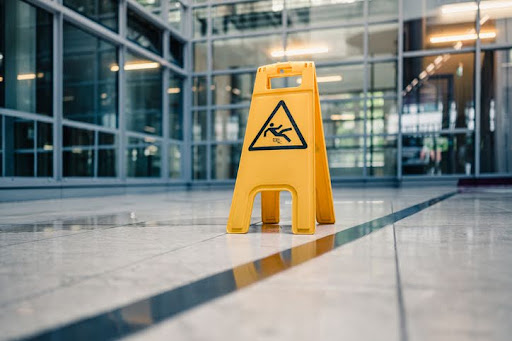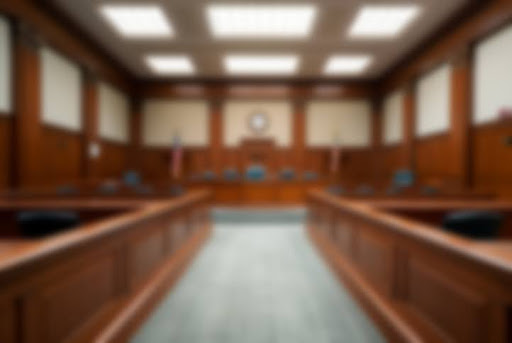What Does a Premises Liability Lawyer Do?

Understanding Premises Liability
Before diving into the duties of a premises liability lawyer, it’s important to understand the basics of premises liability law. In essence, premises liability refers to the responsibility that property owners (or those in control of a property) have to maintain a safe environment for visitors. When they fail to do so, and someone is injured as a result, they can be held legally accountable.
Premises liability cases can arise in a variety of settings, including private homes, businesses, public spaces, and even rental properties. Some common examples of premises liability cases include:
- Slip and Fall Accidents: These occur when someone slips, trips, or falls due to hazardous conditions such as wet floors, uneven surfaces, or poor lighting.
- Inadequate Security: Property owners may be held liable if inadequate security measures lead to criminal activity that causes injury, such as assaults in poorly lit parking lots.
- Dog Bites: In many cases, property owners can be held responsible if their dog bites someone on their property.
- Swimming Pool Accidents: Accidents that occur at swimming pools due to lack of supervision, faulty equipment, or other hazards can lead to premises liability claims.
- Fires and Explosions: If a fire or explosion occurs due to negligence, such as faulty wiring or lack of fire safety measures, the property owner may be held liable.
- Falling Objects: Injuries caused by objects falling from shelves, ceilings, or other elevated areas can also lead to premises liability claims.
In these and other scenarios, a premises liability lawyer can play a crucial role in helping the injured party seek compensation for their injuries.
The Role of a Premises Liability Lawyer
A premises liability lawyer is a legal professional who specializes in cases where individuals have been injured due to unsafe conditions on someone else’s property. Their primary goal is to help their clients obtain compensation for their injuries, which can cover medical expenses, lost wages, pain and suffering, and other related costs. Here’s a closer look at the specific tasks and responsibilities of a premises liability lawyer:
1. Evaluating the Case
The first step a premises liability lawyer takes is to evaluate the potential case. This involves:
- Initial Consultation: The lawyer will meet with the potential client to discuss the details of the incident. They will ask questions about how the injury occurred, the nature of the injuries, and any evidence the client may have, such as photographs or witness statements.
- Assessing Liability: The lawyer will assess whether the property owner or another party can be held liable for the injuries. This involves determining whether there was negligence involved—meaning that the property owner failed to maintain a safe environment or did not take reasonable steps to prevent the injury.
- Determining Viability: Not every premises liability case is viable. The lawyer will evaluate whether the case has a strong likelihood of success based on the evidence and the circumstances of the incident. If the lawyer believes the case is strong, they may agree to take it on a contingency basis, meaning they only get paid if the client wins the case.
2. Investigating the Incident
Once the lawyer takes on a case, they will conduct a thorough investigation to gather evidence and build a strong case. This investigation may include:
- Collecting Evidence: The lawyer will collect all relevant evidence related to the incident. This may include photographs of the accident scene, surveillance footage, maintenance records, and incident reports.
- Interviewing Witnesses: Witness testimony can be crucial in premises liability cases. The lawyer will interview anyone who witnessed the incident or has knowledge of the conditions that led to the injury.
- Consulting Experts: In some cases, the lawyer may consult with experts, such as safety inspectors, engineers, or medical professionals, to provide additional insight into the cause of the accident and the extent of the injuries.
- Analyzing Records: The lawyer will review any relevant records, such as property maintenance logs, security footage, or previous incident reports, to determine if the property owner was aware of the hazardous conditions and failed to address them.
3. Determining Damages
A critical aspect of a premises liability case is determining the extent of the damages suffered by the client. This includes:
- Medical Expenses: The lawyer will calculate the cost of all medical treatments related to the injury, including hospital stays, surgeries, physical therapy, medication, and any future medical care that may be needed.
- Lost Wages: If the injury has caused the client to miss work, the lawyer will calculate the wages lost during that time. They will also consider any potential loss of future earnings if the injury has long-term effects on the client’s ability to work.
- Pain and Suffering: In addition to economic damages, the lawyer will also consider non-economic damages such as pain and suffering, emotional distress, and loss of enjoyment of life.
- Property Damage: If the incident resulted in damage to the client’s personal property, such as clothing or electronic devices, the lawyer will include the cost of repairing or replacing those items in the claim.
4. Negotiating with Insurance Companies
Insurance companies often play a significant role in premises liability cases, as property owners typically have liability insurance to cover such incidents. However, insurance companies are in the business of minimizing payouts, and they may attempt to settle for less than what the client deserves. A premises liability lawyer will handle all negotiations with the insurance companies on behalf of the client, including:
- Filing the Claim: The lawyer will file a claim with the property owner’s insurance company, presenting the evidence and a detailed account of the damages incurred.
- Negotiating a Settlement: The lawyer will negotiate with the insurance adjusters to secure a fair settlement for the client. They will leverage the evidence collected during the investigation to strengthen the client’s position and push for a settlement that covers all the damages.
- Challenging Denials: If the insurance company denies the claim or offers an inadequate settlement, the lawyer can challenge the decision by presenting additional evidence or filing an appeal.
5. Filing a Lawsuit
If negotiations with the insurance company fail to result in a fair settlement, a premises liability lawyer may recommend filing a lawsuit against the property owner. The process of filing a lawsuit includes several key steps:
- Drafting the Complaint: The lawyer will draft a legal document called a complaint, which outlines the client’s case and the damages being sought. The complaint will detail how the property owner’s negligence led to the injury and the impact it has had on the client’s life.
- Serving the Defendant: The complaint is then served to the defendant, who is typically the property owner or the party responsible for maintaining the property. The defendant has a specified amount of time to respond to the complaint.
- Discovery Process: During the discovery phase, both sides exchange evidence and information related to the case. This may include depositions, interrogatories, and requests for documents. The lawyer will use this information to further build the case and prepare for trial.
- Pre-Trial Motions: Before the case goes to trial, the lawyer may file pre-trial motions, such as a motion to dismiss or a motion for summary judgment. These motions can help narrow down the issues to be addressed at trial or potentially resolve the case before it goes to court.
- Trial Representation: If the case proceeds to trial, the premises liability lawyer will represent the client in court. This involves presenting evidence, questioning witnesses, and making legal arguments to demonstrate the property owner’s negligence and the client’s right to compensation.
6. Representing the Client in Court

If a premises liability case goes to trial, having an experienced lawyer is crucial. The lawyer’s role in court includes:
- Presenting Evidence: The lawyer will present all the evidence gathered during the investigation to support the client’s claims. This may include photographs, witness testimony, expert opinions, and any other relevant documentation.
- Questioning Witnesses: The lawyer will question witnesses, including the client, any eyewitnesses to the incident, and expert witnesses. Their goal is to provide a clear and compelling narrative of how the injury occurred and the impact it has had on the client.
- Making Legal Arguments: The lawyer will make legal arguments to demonstrate that the property owner was negligent and that this negligence directly caused the client’s injuries. They will counter any arguments made by the defense and work to establish liability in the eyes of the judge or jury.
- Cross-Examination: The lawyer will also cross-examine the defendant and their witnesses to challenge their credibility and the validity of their arguments. This can be a critical aspect of the trial, as it may reveal inconsistencies or weaknesses in the defense’s case.
7. Handling Appeals
In some cases, the outcome of a trial may not be favorable, or either party may choose to appeal the decision. If an appeal is necessary, a premises liability lawyer will:
- Review the Trial Record: The lawyer will review the entire trial record to identify any legal errors or issues that could be grounds for an appeal.
- Drafting Appellate Briefs: The lawyer will draft and file an appellate brief, outlining the reasons for the appeal and the legal arguments supporting it. This brief is a critical document that must be carefully crafted to persuade the appellate court to overturn the trial court’s decision.
- Oral Arguments: If the appellate court schedules a hearing, the lawyer may present oral arguments on behalf of the client. This involves summarizing the key points of the appeal and responding to any questions or concerns raised by the judges.
8. Providing Ongoing Support and Communication
Throughout the entire process, a premises liability lawyer provides ongoing support and communication to their clients. This includes:
- Keeping Clients Informed: The lawyer will keep the client informed about the progress of the case, any new developments, and the potential outcomes. This helps the client stay involved and make informed decisions about their case.
- Answering Questions: The lawyer is available to answer any questions the client may have about the legal process, the status of the case, or what to expect next.
- Providing Reassurance: Dealing with a premises liability case can be stressful, especially for someone recovering from an injury. The lawyer provides reassurance and guidance, helping the client feel more confident and supported throughout the process.
Do You Need a Premises Liability Lawyer?
After understanding the role of a premises liability lawyer, you may wonder if you truly need one. While not every premises liability case requires legal representation, there are specific situations where having a lawyer can be highly beneficial. For instance, if you’ve suffered serious injuries, face disputed liability, or are dealing with complex legal or insurance issues, a lawyer can help ensure you receive the compensation you deserve. A premises liability lawyer is particularly crucial when the property owner or their insurance company tries to minimize or deny your claim. In these cases, an experienced lawyer can effectively navigate the legal process, protect your rights, and advocate on your behalf to secure a fair outcome.
The Importance of a Premises Liability Lawyer
Premises liability cases can be complex and challenging, especially for those unfamiliar with the legal system. Understanding what a premises liability lawyer does and recognizing the value they bring to your case is crucial. From evaluating your case and investigating the incident to negotiating with insurance companies and representing you in court, a premises liability lawyer is an essential advocate for your rights.
Call Seay/Felton LLC today at (404) 902-6444 and we will help answer any questions you have regarding a premise liability accident you are involved in.

